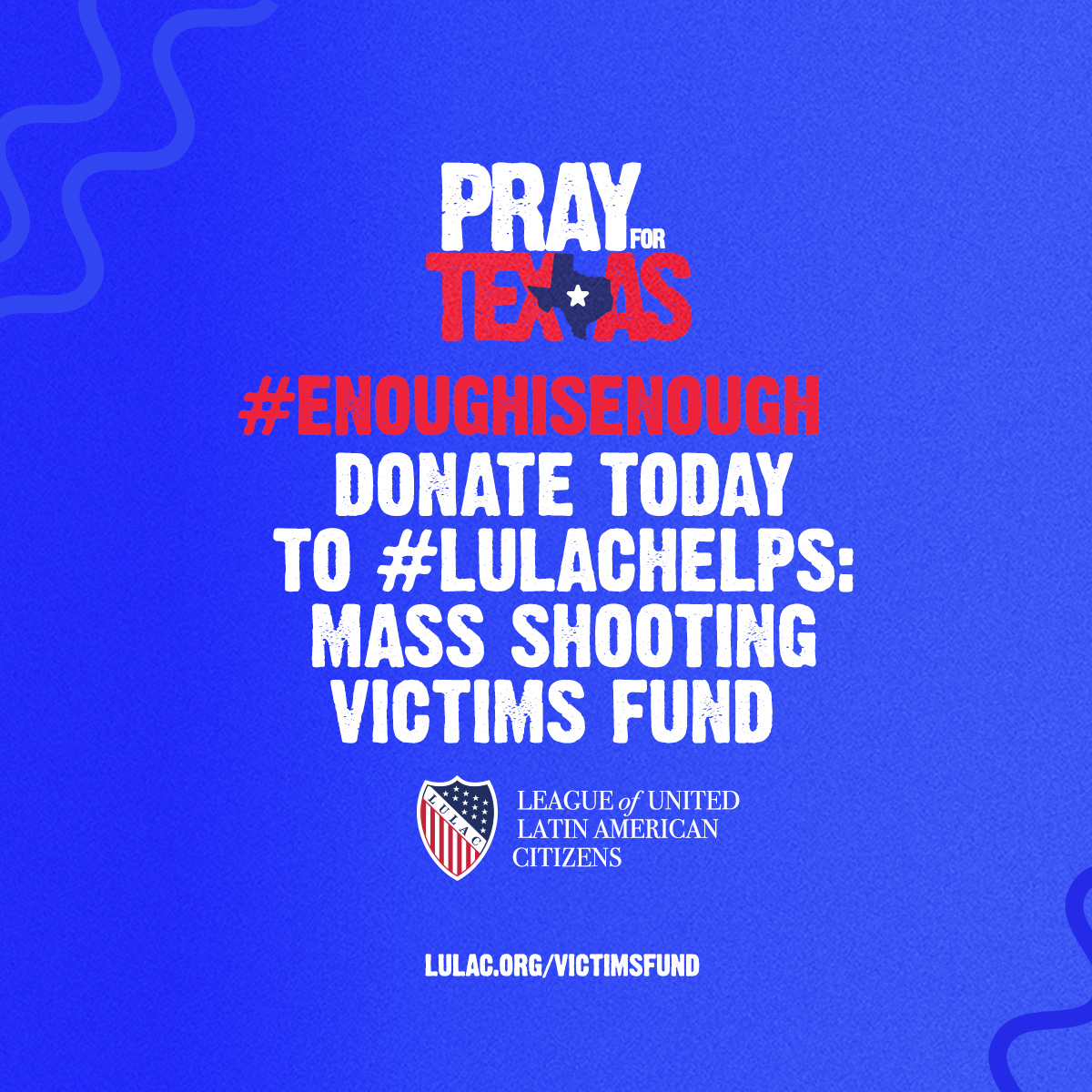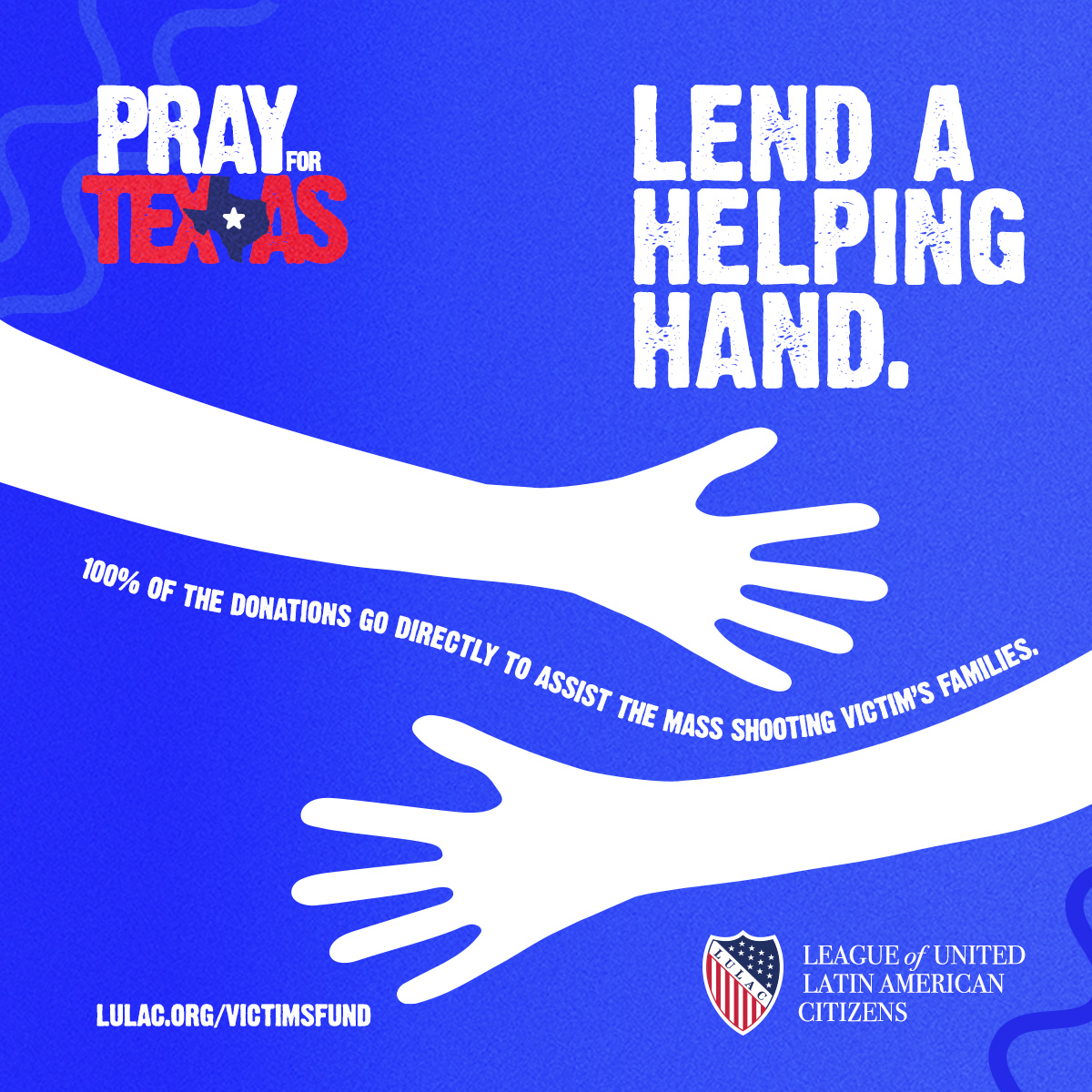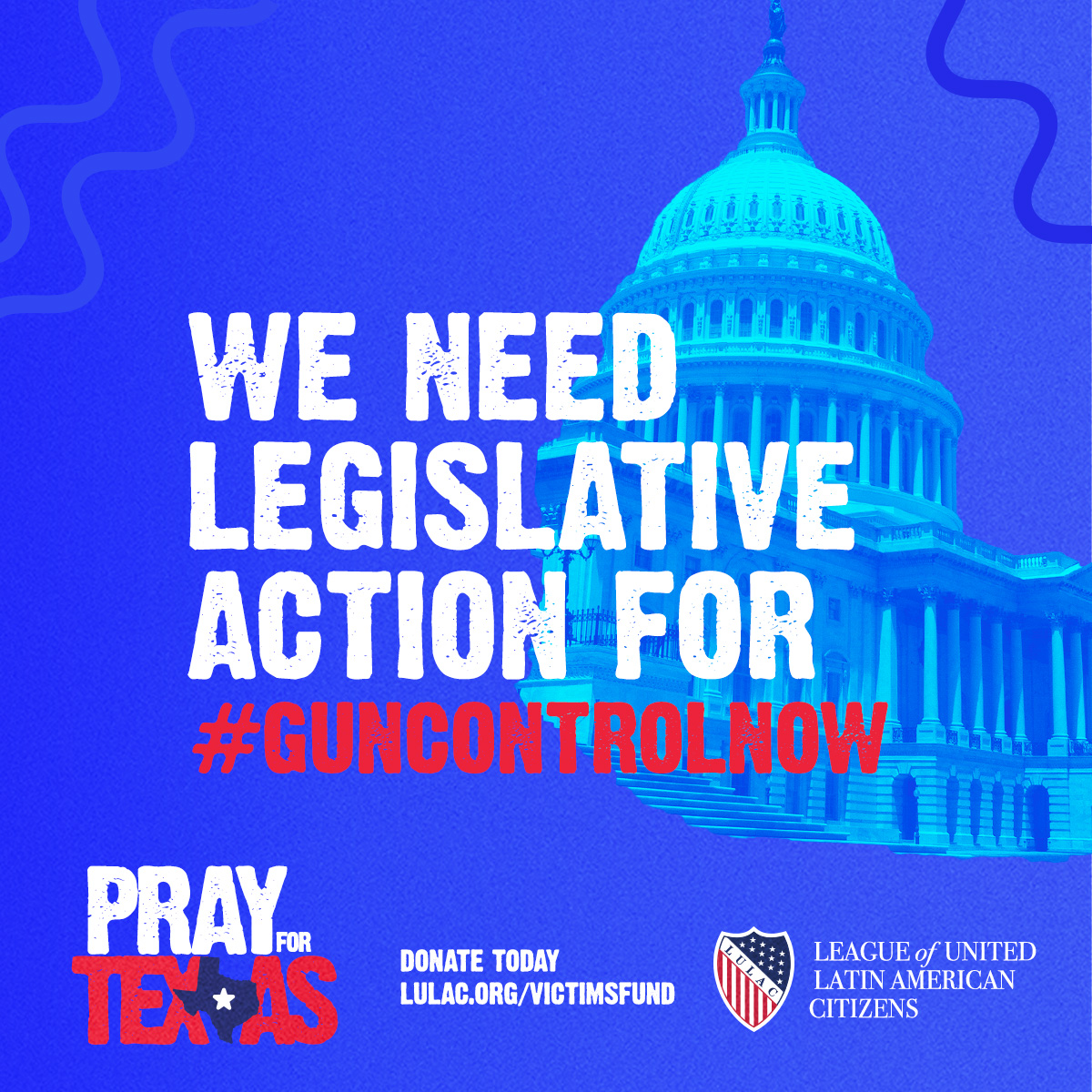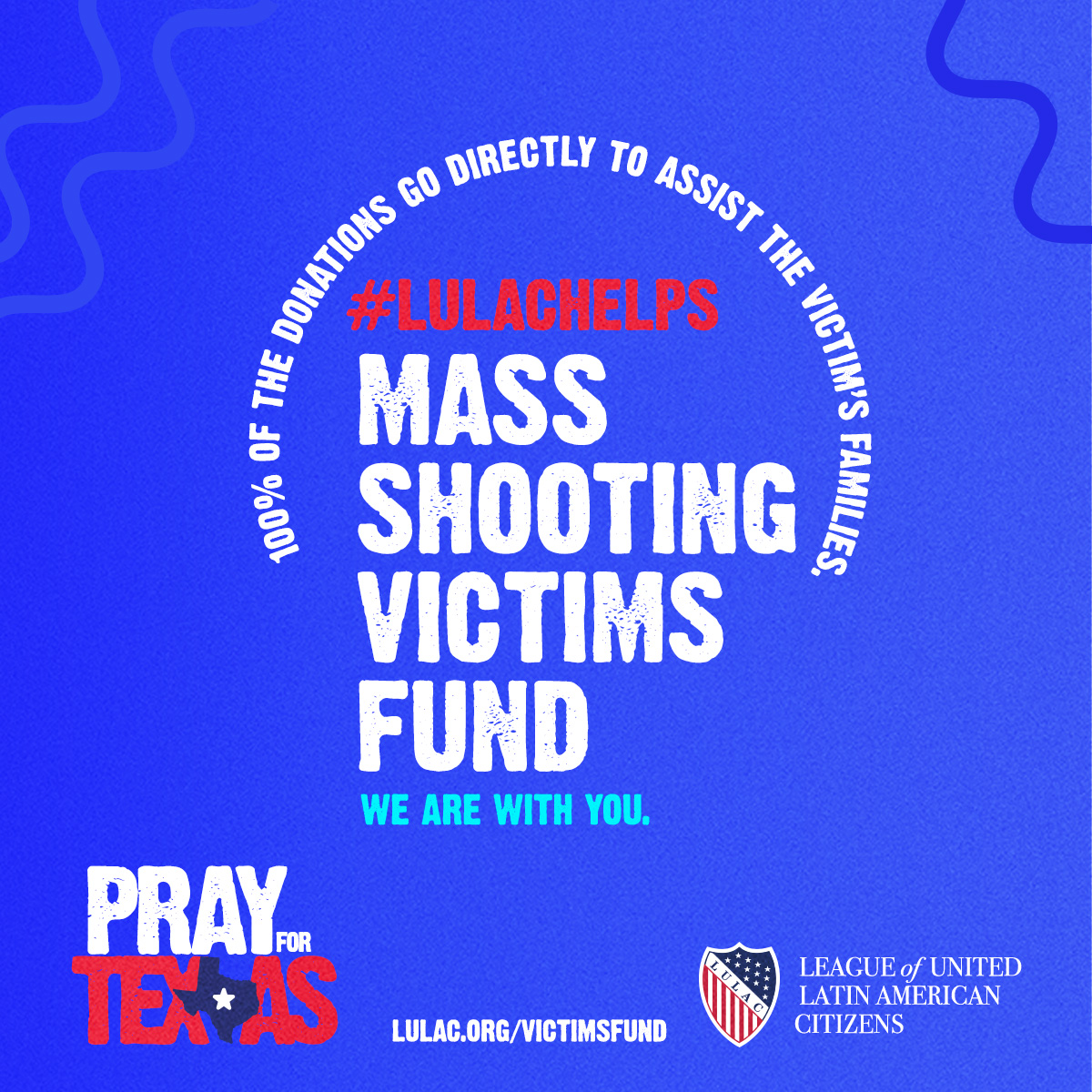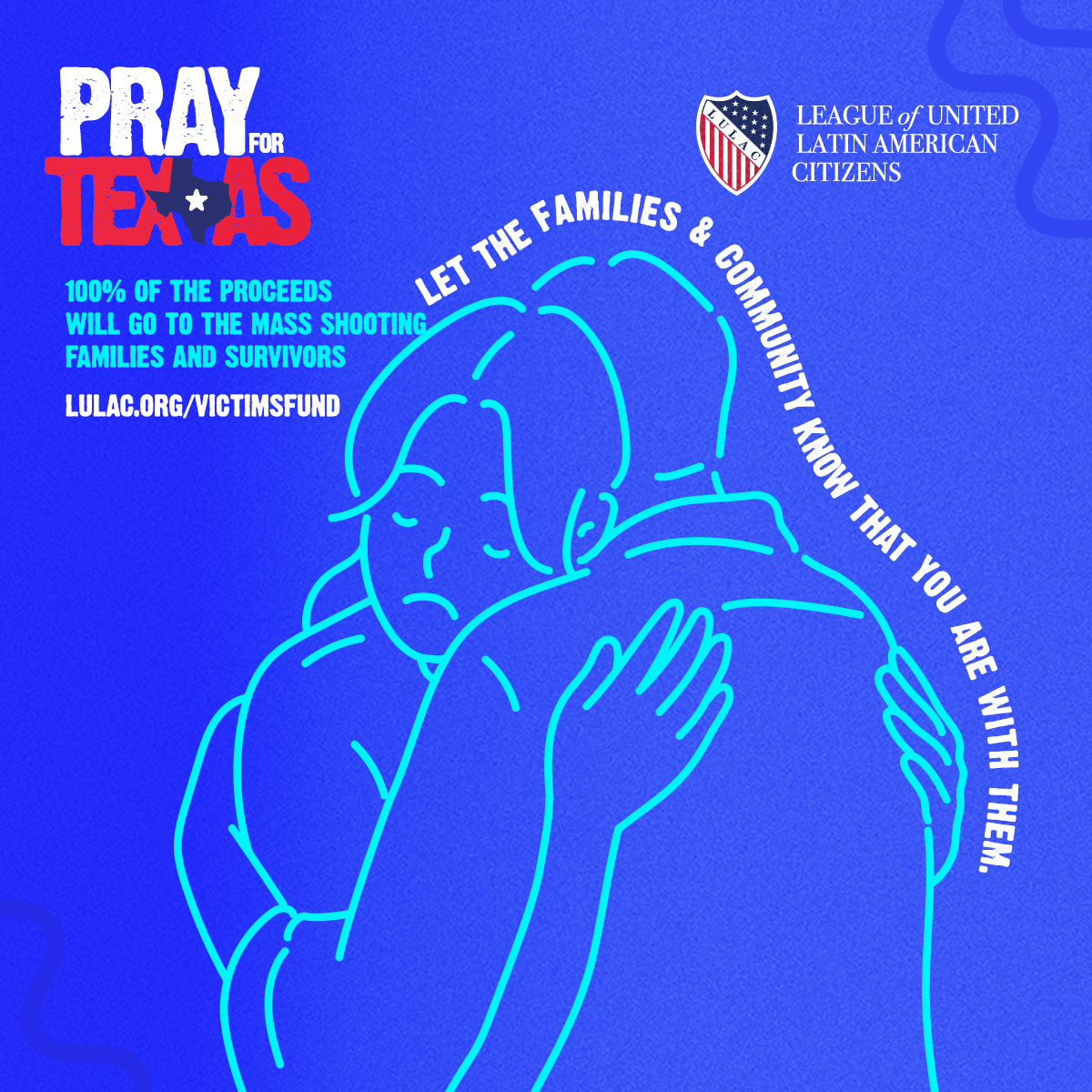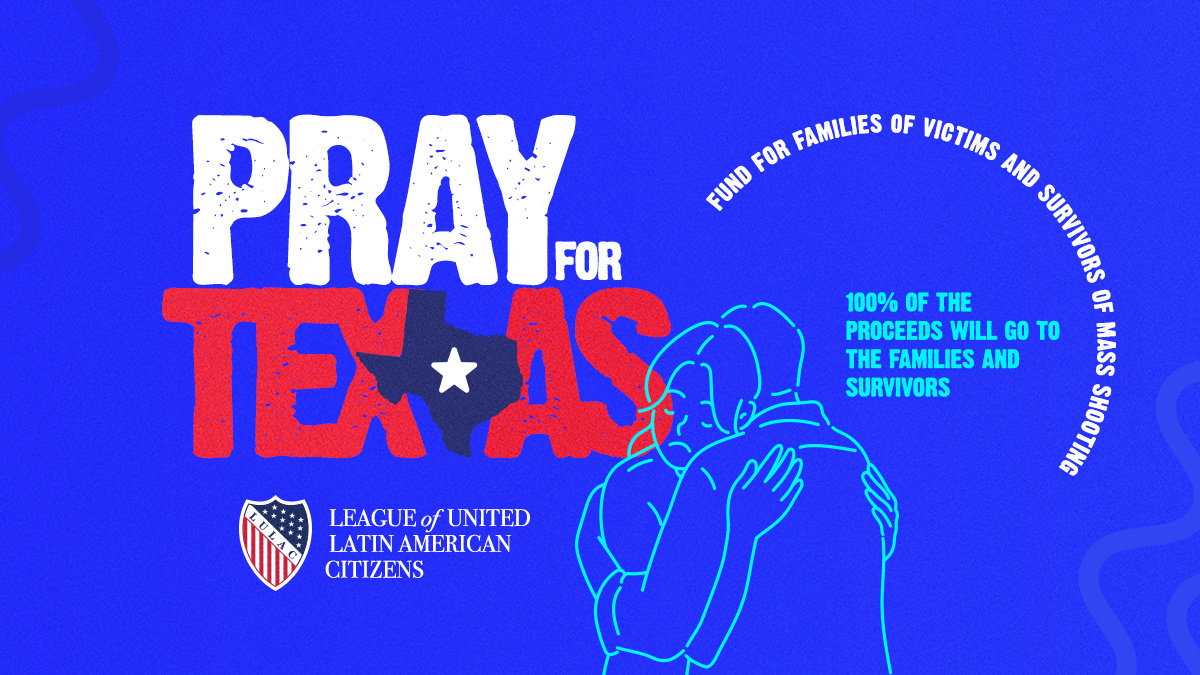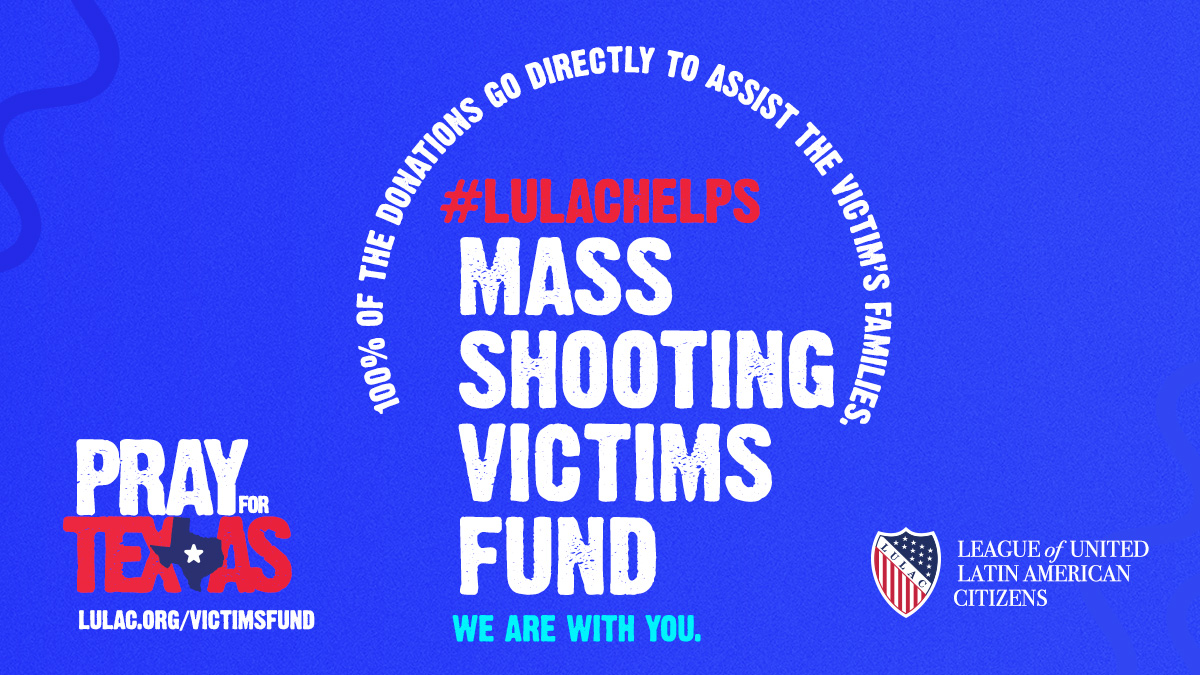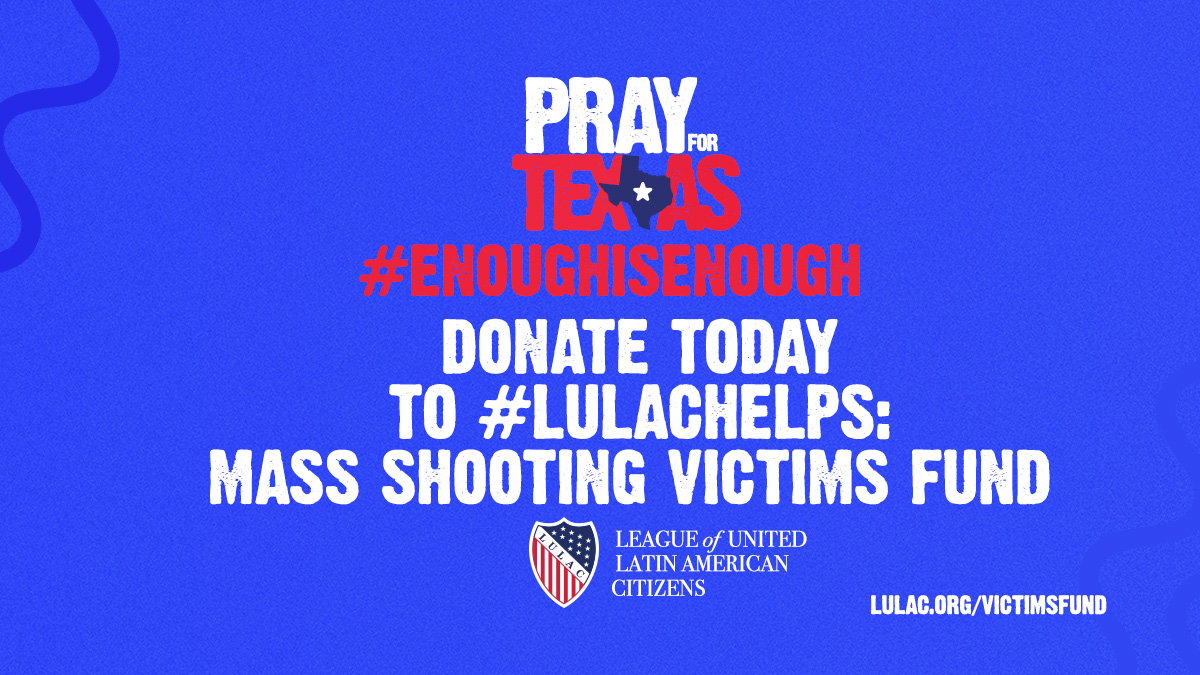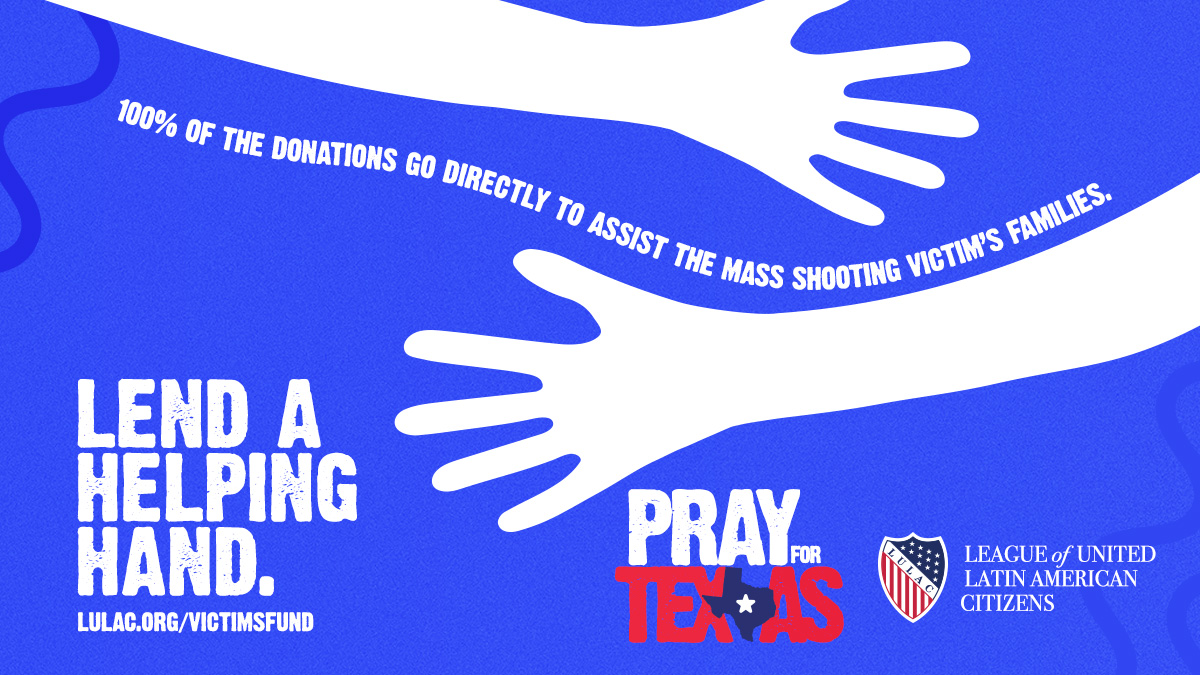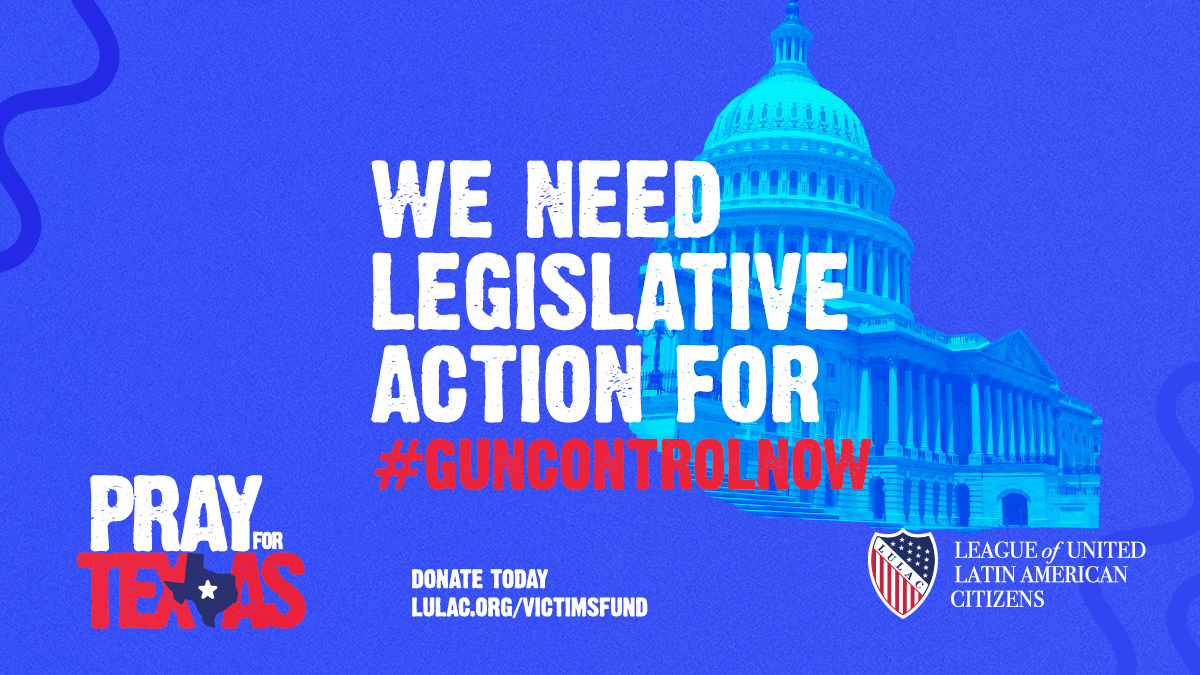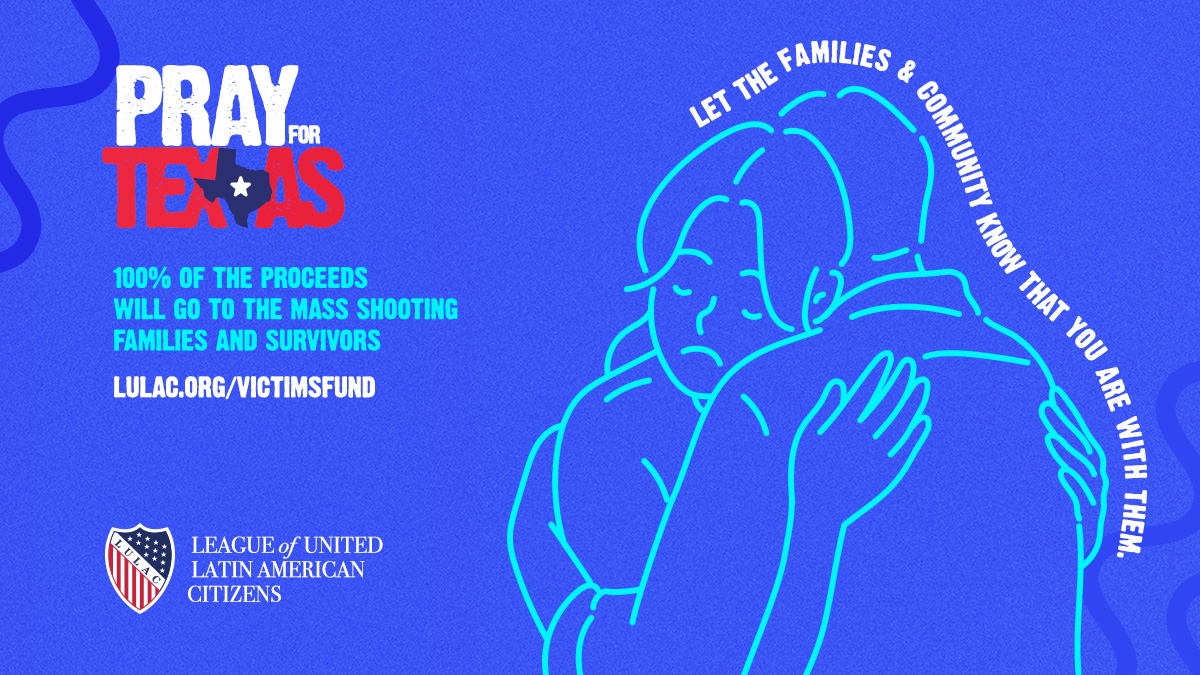Uvalde, Texas
The LULAC family is shocked and saddened to hear of the shooting at Robb Elementary School in Uvalde, TX. Our hearts go out to the victims, their families and everyone present at the school, in addition to the surrounding community. As leaders in our communities, and as parents and educators we may be faced with a number of questions about how to cope with tragedy.
LULAC has compiled a number of resources as we are faced with questions and difficult conversations with children across the country regarding violence. We must approach these conversations with compassion, patience and understanding. Knowing how to talk with your child about violence will play an important role in easing fear and anxieties about their personal safety in these tenuous times as well as helping them to manage rising concerns.
Below you will find a number of resources that cover conversation starters, mental health resources and grief counseling for children from elementary to high school ages.
News and Call To Action
Note: You can also send a check made out to LULAC Institute, Inc. Mail it to:
LULAC Institute, Inc
Attn: Lisa Smith/Mass Shootings Victims Fund
1133 19th St NW, Suite 1000,
Washington, DC 20036
Graphics for Instagram
Graphics for Twitter
Resources
English
- U.S. Department of Justice Office for Victims of Crime: Resources and Support for the Victims in Uvalde, Texas
- U.S. Department of Health and Human Services Substance Abuse and Mental Health Services Administration (SAMHSA) National Distress Helpline offers free multilingual 24/7/365 crisis counseling. Call or text 1-800-985-5990 to connect with a trained crisis counselor. Follow @SAMHSA for regular updates: https://twitter.com/samhsagov.
- SAMHSA Guide for talking about mental health in schools
- Colorín Colorado: 15 Tips for Talking with Children About Violence
- Resources shared by the National Child Traumatic Stress Network:
- Helping School-Age Children with Traumatic Grief: Tips for Caregivers
- Helping Youth After a Community Trauma: Tips for Educators
- Talking to Children: When Scary Things Happen
- Talking to Teens about Violence (En Español)
- For Teens: Coping After Mass Violence (En Español)
- Helping School-Age Children with Traumatic Grief: Tips for Caregivers (En Español)
- Helping Teens with Traumatic Grief: Tips for Caregivers (En Español)
- Helping Young Children with Traumatic Grief: Tips for Caregivers (En Español)
- Pause-Reset-Nourish (PRN) to Promote Wellbeing (En Español) (for responders)
Español
- SAMHSA: La Línea de Ayuda para los Afectados por Catástrofes está disponible las 24 horas del día, los 7 días de la semana, los 365 días del año. Este servicio confidencial, multilingüe y gratuito está disponible para todos los residentes en los Estados Unidos y sus territorios. Llame o envíe un mensaje de texto al 1-800-985-5990 (oprima 2 para español) para comunicarse con un consejero capacitado para tratar situaciones de crisis.
- SAMHSA Guia de maneras con las que puede ayudar a los estudiantes y sus familias
- Colorín Colorado: 15 Consejos para hablar con los niños sobre la violencia
- National Child Traumatic Stress Network:
- Ayuda para los adolescentes con duelo traumático: consejos para los cuidadores
- Ayuda para jóvenes después de un trauma comunitario: consejos para los educadores
- Hablando con los Niños Cuando Sucede La Violencia
- Hablando con los Adolescentes Cuando Sucede la Violencia
- Para los adolescentes: cómo afrontar los efectos de la violencia masiva
- Ayuda para los niños en edad escolar con duelo traumático: consejos para los cuidadores
- Ayuda para los adolescentes con duelo traumático: consejos para los cuidadores
- Ayuda para los niños pequeños con duelo traumático: consejos para los cuidadores
- Pausa - Restablecer - Nutrir (PRN)* para promover el bienestar ¡Utilícelo según sea necesario para cuidar su bienestar!
- Recursos por La Red Nacional para el Estrés Traumático Infantil
- Guía para los padres para ayudar a los jóvenes después de un tiroteo reciente
- Cómo ayudar a los niños a lidiar con un evento traumático (Child Mind Institute)
- Señales de trauma en niños (Child Mind Institute)
U.S. Citizenship and Immigration Services
U.S. Citizenship and Immigration Services reminds the public that we offer immigration services that may help people affected by unforeseen circumstances, including the shooting in Uvalde, Texas.
The following measures may be available on a case-by-case basis upon request:
- Changing a nonimmigrant status or extending a nonimmigrant stay for an individual currently in the United States. If you fail to apply for the extension or change before expiration of your authorized period of admission, we may excuse that if the delay was due to extraordinary circumstances beyond your control;
- Re-parole of individuals previously granted parole by USCIS;
- Expedited processing of advance parole requests;
- Expedited adjudication of requests for off-campus employment authorization for F-1 students experiencing severe economic hardship;
- Expedited adjudication of petitions or applications, including employment authorization applications, when appropriate;
- Consideration of fee waiver requests due to an inability to pay;
- Flexibility for those who received a Request for Evidence or a Notice of Intent to Deny but were unable to submit evidence or otherwise respond in a timely manner;
- Flexibility if you were unable to appear for a scheduled interview with USCIS;
- Expedited replacement of lost or damaged immigration or travel documents issued by USCIS, such as a Permanent Resident Card (Green Card), Employment Authorization Document, or Form I-94, Arrival/Departure Record; and
- Rescheduling a biometric services appointment.
See our Contact Us page for phone numbers and e-mail addresses.


